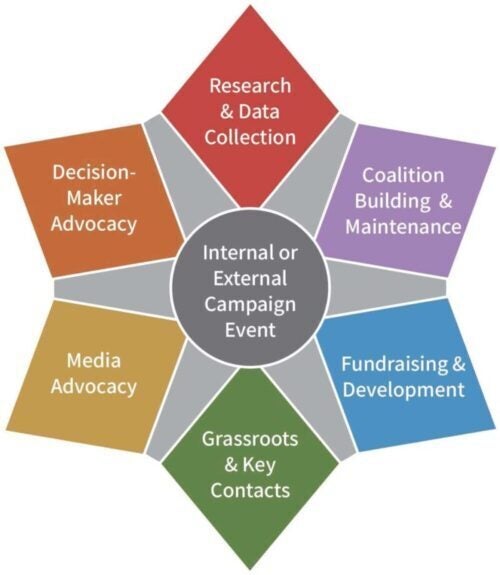 The key decision-makers you are trying to influence do not need to know everything you know about the issue. They are generalists. It’s your job to be the expert. You can make their lives much easier by condensing your expertise into bite-size pieces that they can use with their colleagues. Providing your decision-maker allies with strong talking points, one-page fact sheets, issue briefings, social media content, news coverage, and more helps them make the case for change. So get your facts in order, but be prepared to expand your research well beyond the public health science and into the more nuanced research that fuels advocacy efforts.
The key decision-makers you are trying to influence do not need to know everything you know about the issue. They are generalists. It’s your job to be the expert. You can make their lives much easier by condensing your expertise into bite-size pieces that they can use with their colleagues. Providing your decision-maker allies with strong talking points, one-page fact sheets, issue briefings, social media content, news coverage, and more helps them make the case for change. So get your facts in order, but be prepared to expand your research well beyond the public health science and into the more nuanced research that fuels advocacy efforts.
Because research and data collection are critical foundations of policy advocacy, there are four categories of research that you will want to do early on: Problem, Process, Policy, and People
Choosing a Bill Sponsor:
If you don’t already have a legislative champion who wants to sponsor your body confidence legislation, it’s a good idea to pause and consider your options. For more on choosing an ideal sponsor and co-sponsors, click here.
Research on Key Decision-Makers:
Knowledge is power and the more you know about your key decision-makers and their districts, the better. Click here for tips for effective pathways of influence research.




